July 13-15, 2023 |
Oxford, United Kingdom
With an optional day on July 16
Step Into Challenging Conversations.
Step Up to Make Change.
#StepInStepUp

July 13-15, 2023 |
With an optional day on July 16
Step Into Challenging Conversations.
Step Up to Make Change.
#StepInStepUp
After months of renovations to Rhodes House, we are delighted to be welcoming Global Atlantic Fellows and program staff to the Global Atlantic Fellows Annual Convening 2023. We are very pleased to offer you the opportunity to experience most of the events in a purpose-built, state-ofthe-art convening hall in the House, as well as new spaces for learning, connection and collaboration. This convening marks the official start of your lifelong journey to tackle inequities as part of this global community. The occasion, bringing together all seven Atlantic Fellows programs, comprises 176 Fellows and 57 program staff as well as Atlantic Fellows programs’ board members and guests. The theme for this year’s global annual convening chosen by a focus group of Fellows is #StepInStepUp, so we look forward to engaging in discussions around how we can Step Into discomfort and courageous conversations and then Step Up to make change.
This booklet includes information about your journey to Oxford, what to expect when you arrive and we outline our approach to COVID-19. Keep an eye on the Hub in the Groups section for the Global Atlantic Fellows Annual Convening 2023 Group. You will find all the most up-to-date information, including any cancellations and changes. The Hub at www.af-hub.org is the beating heart of our global community and crucial for connecting and collaborating with others, so make sure that you have logged into the platform and remember to create or update your profile. The Hub is also the place where you can find out about forthcoming events hosted by the Atlantic Institute, grants and other offerings.
If you have any concerns or questions about the Global Atlantic Fellows Annual Convening, please get in touch at: globalconvening2023@atlanticfellows.org.
We are looking forward to an incredible time together and wish you a safe journey to Oxford and the United Kingdom.
Warmly, Atlantic Institute teamThe global community of Atlantic Fellows and staff is a purposeful, values-driven endeavor, which is about making an impact for the benefit of others. It is also a gift exchange, with benefits as well as obligations. As part of these obligations, we ask that members of this community (all of us) give expression to our values in the following ways:
• Show up with kindness and integrity as you connect with people who bring different perspectives and experiences; therefore, we ask that you:
– Share your own perspectives with authenticity, grace and care.
– Sometimes step back and listen to others to ensure there is space for perspectives/ narratives/stories other than your own.
– Engage in courageous conversations (including disagreements) with kindness and empathy — deconstruct but also focus on rebuilding and (k)new solutions (ie., draw on longer histories, knowledge and ways of being but are also made possible by leaps in innovation to catalyze our community to (k)new thinking and action through the wisdom we collectively hold and the possibility of the unimagined.)
– Recognize your own privilege and power, and take action to challenge the status quo and lived realities.
– Feel free to reimagine a (k)new world with others in this community.
– Be mindful of others’ privacy, both in terms of what you share following an experience and on social media if you are photographing others.
• Be leaderly and respectful in the way that you honor the gift of the Atlantic community and, in particular:
– Show up on time for flights, transfers and programming. Be present and respectful of each other and the convenors.
– Be generous with your time and, where possible, your resources — in the spirit of reciprocity.
– Be kind and gracious in the receipt of resources. It is a community of love, but the staff are not your personal travel agents or assistants!
– Share the results of your experiences as an Atlantic Fellow inside and outside of this community.
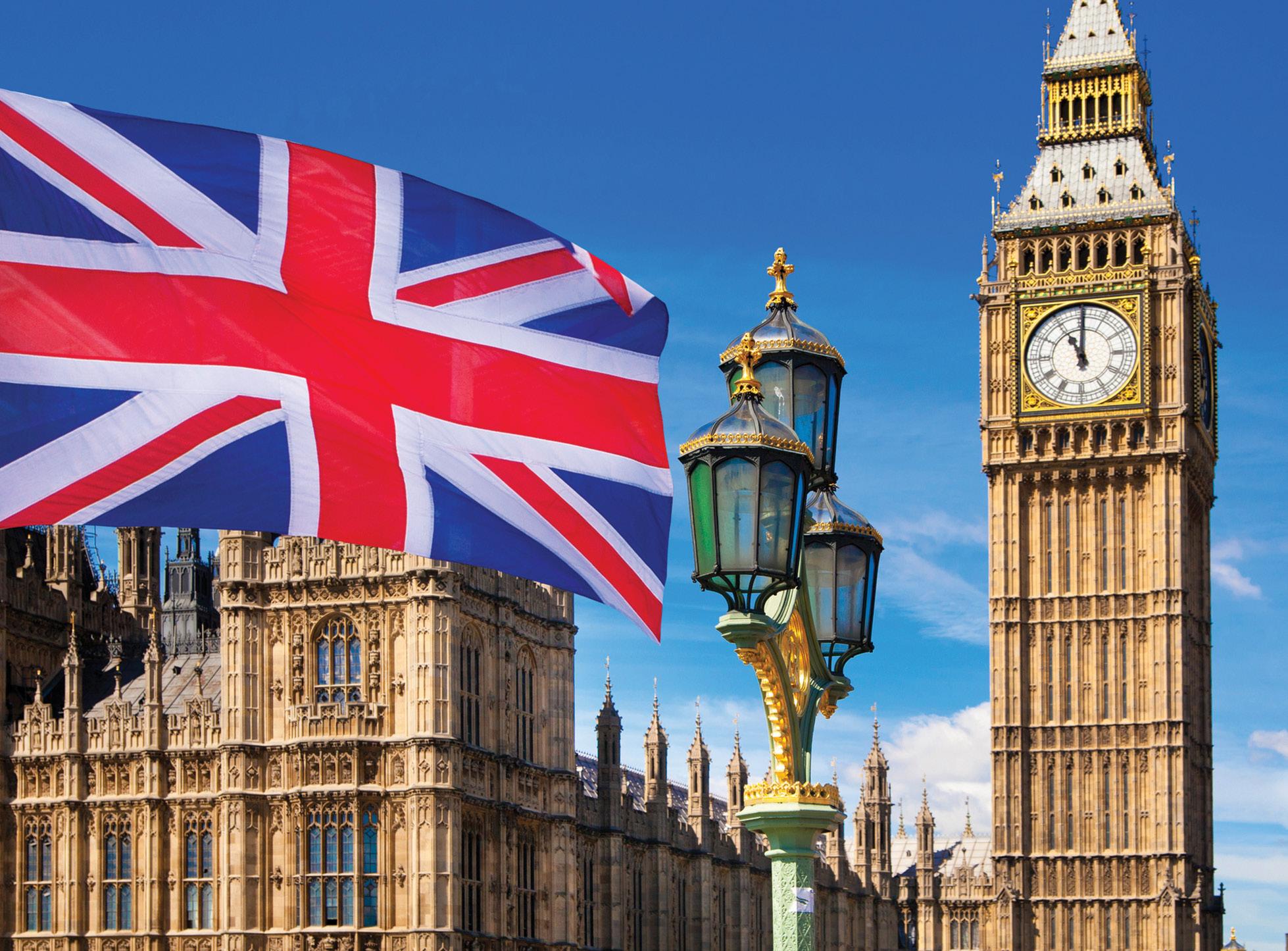
The United Kingdom is a state made up of the historic countries of England, Wales and Scotland, as well as Northern Ireland. It is known as the home of both modern parliamentary democracy and the Industrial Revolution. Like all nations, the U.K has been shaped by conflict, being both a conquered and conquering people, and has cultural, economic and intellectual links across the world.
For a brief introduction please read: www.english-heritage.org.uk/learn/story-of-england and www.history.ac.uk , which includes over 800 podcasts on a wide range of topics related to the United Kingdom.
The British Empire began in the late 1500s under Queen Elizabeth I. By 1913, the empire had grown to rule over 400 million people, making it the largest empire in history. The British government and society benefited economically from the empire and the people colonized by the British had British laws and customs imposed upon them, lost their ability to govern themselves and were, in many cases, violently oppressed. The ongoing impact of colonialism reverberates across the world. Two world wars and the end of the empire diminished its role in the 20th century. The last decade has been marked by growing instability and polarization. A public referendum in 2016 led to Brexit, a political process by which the U.K. left the European Union and sharply divided the country. Brexit has raised questions about whether its standing in the world has been damaged but the U.K. still has economic, political and cultural influence globally. As in many countries, hotly contested topics in the U.K. include inequity, immigration and nationalism.
The University of Oxford was central to the story of empire and conquest, benefiting from the exploitation of natural resources and people (many of whom were slaves). The University is currently bringing together a wide range of initiatives to better understand this history and repair historical and current injustices.
Find out more here: oxfordandcolonialism.web.ox.ac.uk/oxford-stories-people-places
Central to this story has been that of the Rhodes Trust, which hosts the Atlantic Institute. The imperialist founder of the Rhodes Trust, Cecil Rhodes, had a vision of a global society that centered around the British Empire. Racism, patriarchy and other forms of exclusion have been a part of the history of the Rhodes Trust. But today, the Trust’s strategic focus of diversifying the Rhodes Scholarship and the generosity of many donors means that the Scholarships have become far more global and equitable. For example, the Trust is raising £75 million to increase the number of fully endowed Rhodes Scholarships for students from Africa from 17 to 32 per year, resulting in a cohort of up to 100 African Rhodes Scholars in Residence at any one time.
The Trust is also raising funds to endow more Scholarships across the Global South, including Asia, the Middle East and Latin America, working toward a goal of having 125 Rhodes Scholarships this year.
Furthermore, the Trust is seeking not only to diversify its intake but also to enhance the experience for Indigenous scholars, LGBTQI scholars, scholars with disabilities and undocumented scholars by strengthening their mechanisms for academic, financial, personal and career support. The Atlantic Institute’s relationship with the Trust as well as with other partners, including the Schmidt Science Fellowship, Rise and the Mandela-Rhodes Scholarship, seeks to enhance leadership and equity for those at various life stages and outside of the U.K.
More information can be found here: www.rhodeshouse.ox.ac.uk/impact-legacy/legacy-equity-inclusion
The Atlantic Institute and the Rhodes Trust
We acknowledge concerns related to the Rhodes Trust and the University of Oxford, and the decision to host the Atlantic Institute at Rhodes House was not taken lightly. Chris Oechsli, president and chief executive officer of The Atlantic Philanthropies, explains why the Rhodes Trust was selected as a partner for the Atlantic Institute:
“The difficult legacy of Cecil Rhodes, and the Rhodes Must Fall movement, which began in March 2015, presented huge challenges to the prospect of Atlantic’s partnering with the Trust for its equity-oriented legacy fellowship programs and led to serious-minded discussions within the Atlantic board. After serious deliberations, Atlantic chose Rhodes and Oxford purposefully. Partnering with Rhodes was seen as an opportunity for Atlantic [Philanthropies] and Atlantic Fellows to join the Rhodes Trust and Rhodes Scholars in recognizing and moving beyond this painful legacy through open, honest, thought-provoking and solutions-oriented discussions, as Chuck had done in seeking to bring an end to Northern Ireland’s Troubles.”
You can read more about how the Atlantic Institute came to be located at Rhodes House, Oxford in “Our Founding Story” here: www.atlanticfellows.org/news/our-founding-story
YouTube Videos:
1. “Rhodes Must Fall: The Campaign to Remove a Colonial Symbol” by Al Jazeera English. Available at: www.youtube.com/watch?v=EbY0XywrR00
2. “Decolonising the University: Rhodes Must Fall in Oxford” produced by the University of Oxford. Available at: www.youtube.com/watch?v=ZtIRkkAm1tA
Podcasts:
1. “Rhodes Must Fall” by History Extra. Available on Apple Podcasts and Spotify.
2. “Cecil Rhodes and the Legacy of Colonialism,” The Guardian’s “Today in Focus” podcast. Available on Apple Podcasts and Spotify.
Over the last two years, the listed 1929 Rhodes House has been transformed into a 21st-century space for Rhodes Scholars, Atlantic Fellows as well as scholars and fellows from other partnership programs. See photos of the building work in progress.

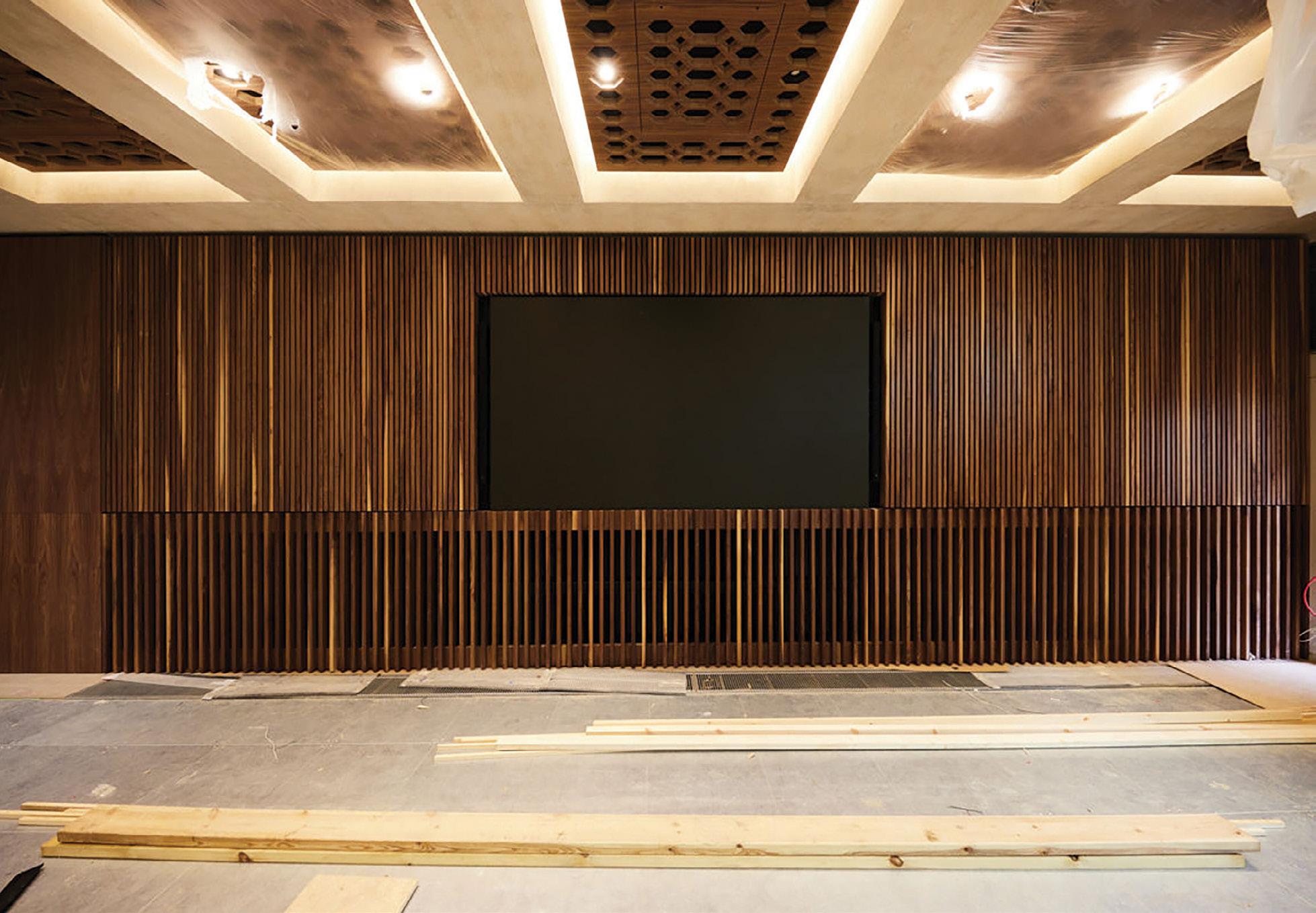
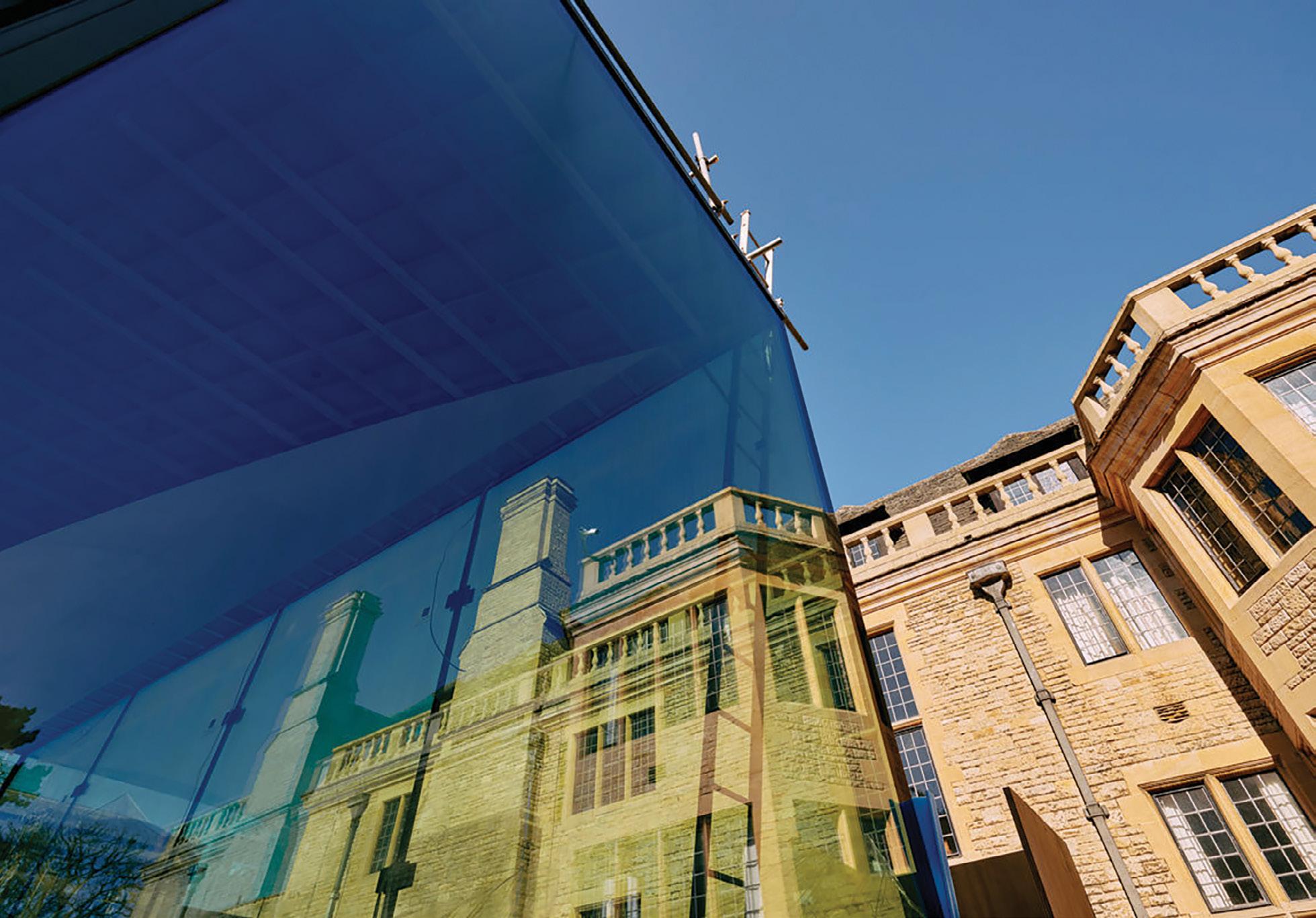
The city of Oxford is home to 160,000 people from all walks of life with significant diversity. International students make up 46% of the University’s total student body — around 12,075 students — from more than 160 countries and territories. But for many, the city of Oxford is starkly unequal. Oxford has been highlighted as the second least affordable city in the U.K. to buy a home outside of London. Living standards across the country in 2022 and 2023 were the worst since the 1930s, with food prices close to a 45-year high. While all in the UK are affected by the current rise in prices, the cost of living crisis has the most substantial effect on people with a low income. At this convening, we will consider the past and recent histories of Oxford and the U.K., places that have contributed to global inequities of many kinds, and look at why various forms of inequity remain entrenched. We will also explore ideas of power in context, widening the aperture of history to view different forms of power — social, cultural, political and economic, and see how narratives continue to be reframed and rewritten.

This global community is one of the world’s most diverse fellowships across every measure, with Atlantic Fellows active in around 70 countries. The Atlantic Institute will strive to support courageous conversations set in a global context that focus on some of the root causes of inequality while also highlighting avenues for change. There are many narratives to explore and we seek to do this together over the course of the next three days. Please take care to communicate respectfully, listen, understand, and try to empathize with one another as we strive to connect and achieve a better understanding of our different histories, ideologies and ways of doing and being.
“It was nourishment for the soul! I oftentimes sat there in awe that I was in the same fellowship as my co-Fellows who were all so amazing and came from such different lived experiences. In what other fellowship would we have commonalities between people from rural Botswana, Nepal, Māori, etc? It was so amazing to connect with everyone.”
Global Atlantic Fellow for Equity in Brain Health, Elizabeth Dzeng, reflecting on the Global Atlantic Fellows Annual Convening 2022

To harness the power, leadership and creativity of the Atlantic community to build a flourishing ecosystem of global changemakers who connect and collaborate across borders developing (k)new perspectives, knowledge and skills resulting in more equitable organizations, communities and nations.
We build platforms and convene the Atlantic community across programs to collaborate, reimagine and act on shared and new possibilities that address the underlying systemic causes of inequity locally, regionally and globally.
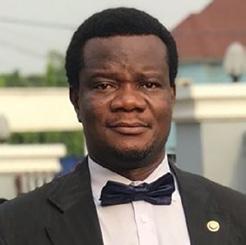
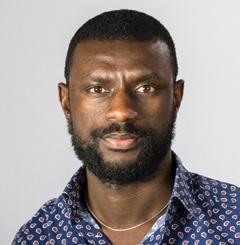

Every year, the Atlantic Institute hosts a welcome ceremony for the newest cohorts of Fellows who have completed their Atlantic Fellows program. The ceremony formally marks your entry into the Global Atlantic Fellows community. Over the course of the convening, the program and activities will include panel discussions, poetry, music, dance, open space, creative workshops and various forms of dialogue and conversations.




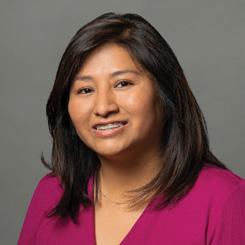
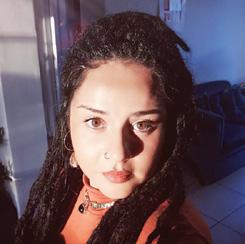

The convening design is a synthesis of the ideas and perspectives of groups that include all program staff and, more centrally, Atlantic Fellows. Drawing on their knowledge, experience and perspectives, we have developed a convening program that we hope will inspire and uplift all those attending.
The 2023 Global Atlantic Fellows Focus Group included at least two Global Atlantic Fellows from each of the seven programs. We loved working with this group, which is a microcosm of our community. We thank them for their support and incredible inputs.
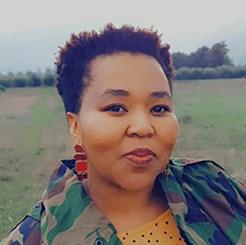

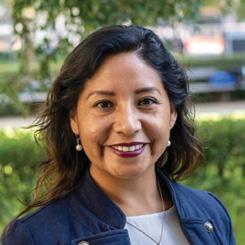
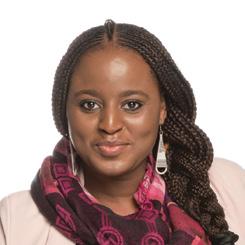





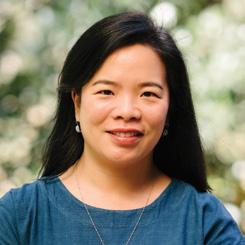
Our pedagogical (teaching and learning) approach is a combination of both “consciousness raising” and “action-reflection.” It draws on the concepts of Brazilian educator and philosopher, Paulo Freire, who said:
“It is not enough for people to come together in dialogue in order to gain knowledge of their social reality. They must act together upon their environment in order critically to reflect upon their reality and so transform it through further action and critical reflection.”
We have woven the voices of Global Atlantic Fellows into the design of the convening, so you can experience:
• Self-reflection and critical disjuncture (Fellows’ panels, workshops, Fellow-led conversations).
• Home Groups — groups of no more than 25 Fellows to have safe dialogues and Fellow-led facilitated debrief meetings. The smaller-sized groups are designed to give the opportunity to reflect in a way that feels more comfortable for sharing conversations.
• Thematic conversations for Fellows, so those with shared interests have opportunities to connect.
• The use of arts, music and creative spaces to encourage the sharing of diverse realities and perspectives.
• Spaces for mindfulness, spirituality and rest, exercise and meditation.
Ultimately, the convening seeks:
• To clarify the purpose of the Global Atlantic Fellows community and the role of the Atlantic Institute in supporting it.
• To provide opportunities for Fellows to connect across programs, disciplines, cultures and ideologies in the spirit of curiosity, reciprocity and collaboration.

• To provide stimulating content that inspires and extends perspectives on equity.
• To ensure that every Global Atlantic Fellow feels part of a global community for collaboration and impact, and is able to commit to the next steps and actions.
“I enjoyed the idea that most of it was run by Fellows themselves. It was good to see ‘equity’ at work where gender, race, age and both the Global South and North were well represented and integrated.”
Global Atlantic Fellow for Health Equity in South Africa, Lebo Molete, reflecting on the Global Atlantic Fellows Annual Convening 2022.

The Atlantic Institute has placed a strategic focus on XR (Extended Realities), or what some refer to as the embodied internet, web three or the metaverse. Just as those furthering equity throughout history have harnessed the power of traditional technologies to uplift communities and ideas, the movement toward equity will be strengthened and celebrated using emerging technologies.
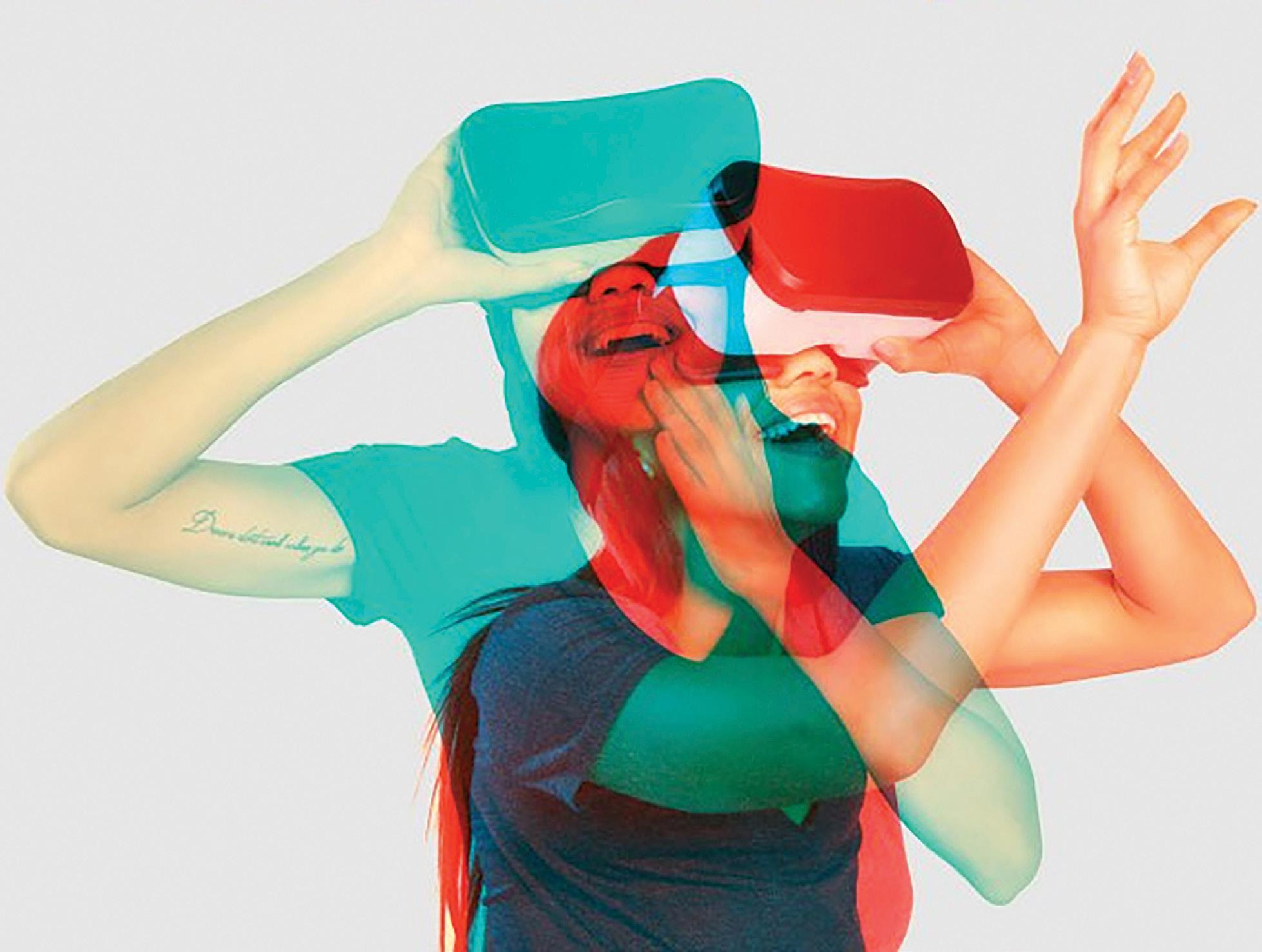
During the convening, we are delighted to welcome you to the newly built XR Lab at Rhodes House. It is a privilege to host GAWI, a VR film made by Global Atlantic Fellow for Social and Economic Equity, Myriam Hernández, and The Rarámuri culture from Northern Mexico. The Rarámuri have been guarding their environment and culture for millennia. They build their reality and wisdom out of connecting with their dreams. At a time of climate crisis, the Rarámuri invite us to join them through a dream-like VR experience. Through oneiric visions, you enter an intimate journey that unfolds at the pace of an ancestral poem about how to become a real Rarámuri and heal the planet (GAWI) and yourself.
Like the technology itself, engagement in this area is emerging, so ask questions, dream with us and explore how Fellows can use this resource to build fairer, healthier, more inclusive societies.
Throughout your time at Rhodes House, we welcome you to visit the XR Lab and experience it. We will also have a session on the link between XR and justice (see more details in the program).
Given the growing inequities between the African continent and the rest of the world, the Atlantic Institute has committed additional resources to African Fellows and those working on the continent. This approach is currently in a pilot phase to test how best to support the community of Atlantic Fellows, both in response to immediate needs and also for making long-term strategic interventions that can catalyze collaborations among Fellows for greater impact and address the root causes of inequities.
This is part of the broader Atlantic Institute strategy to include a focus on regions as well as at a global level. In taking an Africa-centered approach, we recognize the great diversity across the continent and celebrate this diversity as an asset that allows us to draw on the rich histories, Indigenous knowledge and experience of the continent to advance (k)new ways of addressing inequities.
We want to provide opportunities for participants to consider the key issues that impact African Fellows. Our approach currently focuses on these five pillars:
• To create greater opportunities to connect and get to know other Fellows who are part of the community living or working on the African continent.
• To give additional resources to support Fellows in Africa, particularly in relation to making physical space available to Fellows, as needed. Fellows are able to use space for a limited time at the Nelson Mandela Foundation, 107 Central Street, Houghton, Johannesburg, to host meetings or events either free of charge or at a reduced rate.
• Additional programming and skills workshops that account for the unique needs in Africa are also provided.
• To make African-specific offerings available that draw on local cultures and experiences to look at regional issues in depth and explore and strengthen connections between Fellows from the Global South and those in the African diaspora.

• To support partnerships in Africa with key organizations and institutions.
For these reasons, there is a session in the program entitled Africa’s Pathway to a Prosperous Future: Agenda 2063.
and networking — arrival tea
10.00-10.05
to the Atlantic community
Welcome to the Global Convening
Gupta, London Buddhist Centre
Hall Tanya Charles, Atlantic Institute Program and Impact Lead (Fellow Engagement)
Hall
O'Brien, Atlantic Institute Executive Director
Welcome to Rhodes House
Hall
Kiss, Rhodes House Warden 10.20-10.30
Chris Oechsli, The Atlantic Philanthropies President and CEO 10.30-11.15
13.30-16.00
The Atlantic Philanthropies — The Historical Context
An Overview of the Seven Atlantic Fellows Programs and the Atlantic Institute
to Place: A spoken word poem
activity: Getting to know each other
Convening Hall Executive directors of the seven programs and the Atlantic Institute
Lunch Milner, Beit and Atlantic Rooms
Pre-booked XR Lab sessions
Visit the IT Booth: drop-in session between 12.30-13.00 East Lightwell
Visit the Grants Booth: drop-in session between 13.00-13.30 West Lightwell
Local program connection & free time for program staff and guests. Pop-in welcome from Atlantic Institute staff to each program.
Atlantic Fellows for Health Equity U.S. + Global Warden's Lounge Tamara Tur & Selam Bedada
Atlantic Fellows for Equity in Brain Health The Rosebery Room Camellia Latta & Anne-Marie Glynn
Atlantic Fellows for Health Equity in South Africa Scholar Common Room Lance Louskieter & Thandokazi Tabata
Atlantic Fellows for Social and Economic Equity West Lightwell Asmaa Akhtar
Atlantic Fellows for Social Equity East Lightwell Fi Belcher
Atlantic Fellows for Racial Equity JMM Amanda Webb
Atlantic Fellows for Health Equity in Southeast Asia Pavilion Maytiwa Thavornpinittham
The light green-colored sections denote the breaks.
16.00-16.30
15.00-16.15
Walk back to Rhodes Convening Hall (RCH) to start the next session
Tea available. Collect when ready.
Local program presentations: “Who We Are”
Atlantic Fellows for Health Equity U.S. + Global
Atlantic Fellows for Equity in Brain Health
Atlantic Fellows for Health Equity in South Africa
16.30-17.30
Atlantic Fellows for Social and Economic Equity
Atlantic Fellows for Social Equity
Atlantic Fellows for Racial Equity
Atlantic Fellows for Health Equity in Southeast Asia
17.30-18.30
18.30-22.00
Rhodes Convening Hall
Free time/dress for dinner. Walk back to accommodation. Coaches leave from Rhodes House to take to hotels and back.
Pre-booked XR Lab sessions XR Lab
Official Formal Welcome Dinner
Dress: Smart/casual/traditional attire. This will be a formal “Welcome to Oxford” dinner held at an Oxford University museum displaying natural history specimens and archives. Music will be provided by Chineke! Voices, a vocal ensemble of world-class, professional Black and ethnically diverse singers. Unfortunately, partners and children cannot be accommodated (apart from nursing parents).
Oxford University Museum of Natural History
9.15-9.30
Exploring the Theme: #StepInStepUp: A Word from our Global Atlantic Fellow Focus Group
Fellow Focus Group representatives: Anne Laux (Atlantic Fellow for Health Equity U.S. + Global) and Muthoni Gichu (Atlantic Fellow for Equity in Brain Health)
9.30-11.00
There is little doubt that British colonialism not only resulted in economic exploitation but also had profound social and cultural implications. As a “former” colonial power, Britain’s reach extended across continents, shaping the trajectory of nations and leaving a lasting impact on the world. While the British Empire contributed to technological advancements and cultural exchanges, it also played a significant role in perpetuating global inequality. The panelists, who are experts in British and world history, identitypolitics, social and economic justice, will explore the consequences of British colonialism to better understand how Britain’s actions have influenced the unequal distribution of power, resources and opportunities globally. They will examine the implications of colonization in today’s world, and discuss possible avenues to address the social, political and economic problems that have arisen. As all the panelists have worked successfully in the media space, the session will also delve into the media’s role in shaping our understanding of history and how (if at all) this plays a part in the politics of today.
Rhodes Convening Hall
Gary Younge — awardwinning author, broadcaster and professor of sociology, University of Manchester, U.K.; David Olusoga OBE — historian, writer, broadcaster and professor of history, University of Manchester, U.K; and Laura Trevelyan — international news anchor
Panel moderator: Tanya Charles, Atlantic Institute
11.00-11.30 Group photo Rhodes House Fionnuala Sweeney, Atlantic Institute
11.00-12.00 Tea break Milner Hall
Decoding Session 1: Check in and discussions in Home Groups & free time for program staff and guests
Red Home Group led by Muthoni Gichu JMM
Orange Home Group led by Scott Nass Fellowships Boardroom
Green Home Group led by LJ Villarante Warden’s Lounge
Pink Home Group led by Lauren Burke Pavilion
Purple Home Group led by Goris Mustaqim West Lightwell
11.30-13.00
White Home Group led by Rennta Chrisdiana East Lightwell
Cyan Home Group led by Ana Ortega Scholar Common Room
Brown Home Group led by Dorah Marema Rosebery (front half)
Lime Home Group led by Busisiwe Dlamini Rosebery (back half)
Black Home Group led by Rachael Galway Rhodes Convening Hall
Blue Home Group led by Ivana Merckel Rhodes Convening Hall
Grey Home Group led by Tracey Malawana Rhodes Convening Hall
The light green-colored sections denote the breaks.
13.00-14.30
Lunch Milner, Beit and Atlantic Rooms
Pre-booked XR Lab sessions
Visit the IT Booth: drop in session between 13.00-13.30
XR Lab
East Lightwell
Visit the Grants Booth: drop in session between 13.30-14.00 West Lightwell
14.30-14.35
Energizer
Interactive Keynote: Sustainable Economies
Rhodes Convening Hall
14.35-15.35
“Doughnut Economics” has gained popularity among policymakers, economists, and activists worldwide. It has influenced discussions on sustainable development goals and has been embraced by various organizations and city governments seeking to redefine their economic policies. Kate Raworth’s book “Doughnut Economics” has had a significant impact on economic thinking and policy discussions. The book introduces a new framework for understanding and addressing the global challenges of the 21st century. The central concept of the book is the “doughnut” model, which presents a visual representation of sustainable development. Raworth argues that traditional economic models, focused primarily on GDP growth, have failed to account for ecological limits and social inequalities. She advocates for a new economic paradigm that prioritizes human well-being while respecting environmental boundaries. This session provides strategies for how (k)new thinking can have a big impact on ‘business as usual’
15.35-16.00 Tea break
Milner Hall
16.30-17.30
The quest for self-determination for the people on the African continent and the African diaspora is an ongoing challenge that can be attributed to a long history of subjugation and its subsequent impact on the lives of African people in various ways. Efforts to address past injustices have not been fully realized and what emerges is a complex picture of Africa and how it relates to the rest of the world (and vice versa). Agenda 2063 is one of the tools that leaders of the African continent have adapted as the African Union’s main strategic plan to build a better, sustainable and more inclusive future for Africa. Agenda 2063 is intentionally linked to the Sustainable Development Goals (SDG) as outlined by the United Nations, drawing links between Africa’s path to prosperity and the international arena. Will this strategic framework be enough to reimagine how Africa can reposition itself in the world? How do we actively address the burden of Africa’s history with empire (broad sense of geopolitical super powers) and build equitable futures that repair the relations and promote self-determination? What else could we be doing in our own work and communities to further this agenda? These are some of the questions that will be debated.
Patronella Nqaba (Atlantic Institute), Makmid Kamara (Atlantic Fellow for Social and Economic Equity), Musa Gwebani (Atlantic Fellow for Racial Equity), Sara Lavinia Brair (Atlantic Fellow for Health Equity U.S. + Global)
17.30-19.00
Free time/dress for dinner. Coaches to hotel depart and return to Rhodes House. Fellows to walk to dinner locations.
Pre-booked XR Lab sessions XR Lab
Home Groups Dinner in Oxford city. Enjoy local cuisines across Oxford, hosted by independent business owners and families, who will share their personal experiences of life in Oxford while you eat. Partners and children can join this one!
19.00-20.30
Program staff BBQ. Staff and guests will have the opportunity to connect and catch up at an informal dinner hosted at Rhodes House. Partners and children are welcome.
20.30-22.00
Slam Night: Our community is home to some of the most amazing poets, singers, dancers and entertainers. Come to Rhodes House for a night of music and dancing. All welcome.
Various venues
Atlantic Fellows hosted by Home Group leads.
Rhodes House
Rhodes Convening Hall
COURAGEOUS CONTENT, STRATEGIES FOR CHANGE AND (K)NEW SOLUTIONS
9.00-9.30 Welcome, notices and feedback
Panel: (Un)Doing Public Health: (K)New Approaches to Addressing Health Inequalities
Rhodes Convening Hall
Tanya and Evie, Atlantic Institute
9.30-11:00
Health inequalities, often rooted in systemic disparities, continue to be a pressing issue in societies worldwide. Traditional approaches to public health have made significant progress in addressing some of these inequalities, but they often fall short of achieving comprehensive and sustainable solutions. In response, new approaches and strategies have emerged, challenging the conventional norms and offering innovative ways to tackle health inequities. This panel discussion aims to explore and critically analyze these (un)doing approaches to public health, focusing on the potential of (k)new strategies for addressing health inequalities, including decolonial and Indigenous-led approaches.
11.00-11.30 Tea break
The light green-colored sections denote the breaks.
Rhodes Convening Hall
Professor Bola Owolabi –Director, Health Inequalities at NHS England; Brandi Payton (Atlantic Fellow for Health Equity U.S + Global); Tendai Chisirimunhu (Atlantic Fellow for Health Equity in South Africa). Panel moderator: Lovelyn Nwadeyi (Atlantic Fellow for Racial Equity)
Milner, Atlantic and Beit
11.30-13.00
Fellow-Led Sessions: Thematic Cross-program Dialogues
Program staff and guests have free time. In this session, you will sit in the interest or issue groups you listed in your RSVP form. For 90 minutes, you will have the opportunity to discuss these and other topics together and, if possible, make plans for collaboration and action.
13.00-14.30
14.30-14.35
14.35-15.35
Rhodes Convening Hall
Lunch Milner, Atlantic and Beit
Pre-booked XR Lab sessions XR Lab
Visit the IT Booth: drop-in session between 12.30-13.00 East Lightwell
Visit the Grants Booth: drop-in session between 13.00 - 13.30 West Lightwell
Energizer
Panel Session: XR as a Liberatory Tool: Community-developed VR to Dream Fairer Futures
We believe the future landscape of social justice will be shaped by XR (Extended Reality), or what some call the embodied internet, web three or the metaverse. Just as those furthering equity throughout history have harnessed the power of traditional technologies to uplift communities and ideas, we believe the movement toward equity will be strengthened and celebrated using emerging technologies.
This panel will reflect on the stunning VR film, GAWI, co-created by Atlantic Fellow for Social and Economic Equity, Myriam Hernández, with the Rarámuri culture from Northern Mexico. You are invited to experience this work in the XR Space throughout the convening. We will hear from members of the community about the process of creating GAWI, considering practical strategies to meaningfully collaborate with and serve communities using XR.
Along with the GAWI team and Atlantic Fellow for Racial Equity Nasser Eledroos, we will explore activist practices in virtual spaces, recognizing them as sites for great potential; liberation, self-expression and community; but also look at the great risk of perpetuating existing and harmful power structures. During this session we will grapple with this duality, in the hope of establishing our Atlantic Fellows community as one equipped to confidently critique, connect with and champion this technology.
15.35-16.00
Rhodes Convening Hall
Rhodes Convening Hall
Myriam Hernández (Atlantic Fellow for Social and Economic Equity), Isabelle Monarca Cruz (GAWI), Lorenzo Moreno Pajarito (GAWI), and Nasser Eledroos (Atlantic Fellow for Racial Equity)
Panel moderator: Alice Wroe, Atlantic Institute
Rhodes Convening Hall
16.00-17.00
Home Group Session: Checkout. This is the last opportunity to reflect in person on the experiences and learnings of this convening. Program staff and guests have free time.
Red Home Group led by Muthoni Gichu JMM
Orange Home Group led by Scott Nass Fellowships Boardroom
Green Home Group led by LJ Villarante Warden’s Lounge
Pink Home Group led by Lauren Burke Pavilion
Purple Home Group led by Goris Mustaqim West Lightwell
White Home Group led by Rennta Chrisdiana East Lightwell
Cyan Home Group led by Ana Ortega Scholar Common Room
Brown Home Group led by Dorah Marema Rosebery (front half)
Lime Home Group led by Busisiwe Dlamini Rosebery (back half)
Black Home Group led by Rachael Galway Rhodes Convening Hall
Blue Home Group led by Ivana Merckel Rhodes Convening Hall
Grey Home Group led by Tracey Malawana Rhodes Convening Hall
17.00-17.15
Return to Rhodes Convening Hall
Community Building: In Conversation with Atlantic Fellows
17.15-18.15
The session will provide Fellows with information on what to expect as they enter the global community, stepping in with a background overview of the Atlantic Institute and the Atlantic Community. In the second part of the session, we will have a structured discussion with Fellows on the different ways in which they are stepping up in the community
18.15-18.30
Official closing remarks and acknowledgements
18.30-19.30
Free Time. Walk to Oxford Town Hall for dinner and the party (it takes 20 mins from Rhodes House). Coaches will be provided for those at hotels.
Closing Dinner and Party
Rhodes Convening Hall
Amanda Oduka and Khalil Goga from the Atlantic Institute with Natarajan Rajaraman (Atlantic Fellow for Health Equity in Southeast Asia), Renata Ćuk (Atlantic Fellow for Social and Economic Equity) and Ruby Hembrom (Atlantic Fellow for Social and Economic Equity)
19.30-23.30
Dress code: Casual and comfortable. This is the official closing dinner of the annual convening. After a shared meal, we will have the opportunity to enjoy some Cèilidh dancing, with steps taught by professionals. Then, it is on to our World Music Party featuring your favourite songs. Unfortunately, partners and children cannot be accommodated (apart from nursing parents).
Rhodes Convening Hall
Atlantic Institute
Rhodes Convening Hall
The light green-colored sections denote the breaks.
Oxford Town Hall
TIME SESSION
10:00
10.00-11.00
11.00-12.30
11.00-13.00
12.30-14.30
Rhodes House opens to all Fellows, staff and guests
VENUE FACILITATORS/SPEAKERS
Rhodes House
Meditation Pavilion
Fellow-led session: Storytelling as a Vehicle or Tool for Re-membering Dismembered Selves and Histories
Pop-In: Q&A on Grants
Lunch — All Welcome
All day Visit the XR Lab
All day Visit the Creative Tent
All day
17.30-20.30
Self-organized Fellows' connection time
Dinner BBQ — All welcome
Rhodes Convening Hall
Rhodes House
Milner Hall
XR Lab
Surya Gupta, London Buddhist Centre
Xena Scullard (Atlantic Fellow for Racial Equity) and Ukhona Ntsali Mlandu (Atlantic Fellow for Racial Equity)
Amanda Oduka and Khalil Goga, Atlantic Institute
Rhodes House Courtyard
Across Rhodes House
Rhodes House
“You don’t feel afraid to be you. Because of the spaces we’re working in, we have to work within a certain protocol that people are expecting of you. But here, you can just throw questions and you’re not afraid. They’re courageous conversations.”
Global Atlantic Fellow for Health Equity in Southeast Asia, Alfredo Coro II, reflecting on the Global Atlantic Fellows Annual Convening 2022.
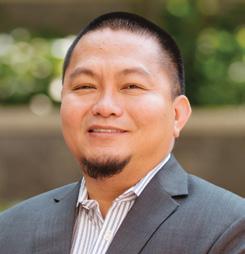
As a global community, we all have to balance equity and health concerns, so we seek to limit transmission through masking, social distancing and high vaccine take-up. We are mindful of our collective responsibility to act in ways that might reduce the risk of transmission, which could result in serious illness and unnecessary loss of life especially for those who have underlying health conditions.
Regardless of governmental or institutional guidelines, we as a community are committing to a collective care approach with a focus on solidarity and care for others.
For this event, Fellows will receive a COVID care pack, which includes lateral flow test kits (and a request to self-test every three days) and surgical/N95 masks. Bottles of sanitizer will be available at the venue.
Should you test positive for COVID-19, the Institute will cover all costs related to changed flights and accommodation.
Reed & Mackay is making all of the flight arrangements. Airport transfers will be arranged from the airport (details below).
You may need to prove that you have a valid reason for entering the U.K. to an immigration officer at border control. You may also be requested by airline staff at check-in to provide additional documentation to support your case, so please keep a printed copy of:
• Your return airline ticket.
• Proof of accommodation.
• Bank statements showing you have sufficient funds for the duration of the stay. Please contact Kim Ooi at: kim.ooi@atlanticfellows.org as soon as possible if this is a concern and we will arrange additional paperwork for you. All details will be kept confidential.
• Your passport must be valid for at least six months before the date of return and have two blank pages. (Three blank pages are needed for visas from South Africa.)
• Any additional information that may be requested when applying.
For those arriving by air, transport from the airport to your accommodation will be arranged by Reed and McKay. Transfer details have been emailed to you. The driver will be waiting for you at airport arrivals, holding a sign with “Atlantic Institute.”
If you are unable to find the driver or if you experience any delays, please contact David Mallinson at d.mallinson@atlanticfellows.org , or the driver directly on the contact details provided.
You will be staying at a college (Keble College or St. Anne’s College), or a hotel, as confirmed in the email you should have received from us. Transport to and from the accommodation is not provided as Oxford is a small city and most venues are within walking distance. However, coaches will be provided for those staying farther out of the city.
What costs are covered by the Atlantic Institute?
During your time here, the Atlantic Institute will cover the costs of:
• Breakfast, lunch and dinner each day as well as drinks during breaks.
• Accommodation from the date of your arrival — from July 11 or July 12 — up to the date of your departure on July 16, 17 or 18 as confirmed by us with you. On the optional day, July 16, Fellows and guests can spend time at Rhodes House to enjoy some leisure activities. Anyone who signed up for an Oxford Tour will also be able to do so on July 16, with the cost covered by the Institute.
• Wellness sessions undertaken during the convening program, specifically psychosocial counselling and art therapy.
What costs are not covered by the Atlantic Institute?
• Room service: For those of you staying in hotels, while you are welcome to order anything to your room, please settle the bills immediately. Due to the large number of guests staying in our group, the hotel will not allow you to put charges to the room.
• Laundry: There will be laundry facilities available to use at your own cost. Detailed instructions and costs will be communicated to you.
• As all meals are provided, any self-organized meals will be at your own cost. You will not be reimbursed for those meals.
While you are welcome to extend your stay outside of the confirmed dates, you will need to cover any related costs.
You will receive a gift bag from the Atlantic Institute on your arrival, which contains:
• A water bottle
• A notebook and pen
• A branded polo shirt and cap
• A boxed gift candle
• A tote bag with a design celebrating the Global Convening
• A Postcard of Kopanong | Atlantic Fellows Residence (in Oxford)
• A print copy of “The Global Community Book (2016-2023)”
• A print copy of “Global Atlantic Fellows Guide”
• Face masks to protect against COVID-19 (should you want to wear a mask)
• COVID-19 test-kits
Each Fellow will receive £125 as a contribution toward the travel expenses. This includes £50 for travel insurance to cover your costs (for example, should you lose your bags or experience other unexpected events on your trip). The remainder is intended as a contribution toward the cost of your transport to the airport on your return and any self-organized meals.
There will be a two psychotherapists on hand onsite, should you need assistance. Details of how you can make appointments with them during the convening are available on the Hub.
The Creative Play Room is a space for relaxing and expressing yourself through self-guided painting, drawing and/or making. There will be a series of prompts posted around the room to help get your creative juices flowing in a way that connects to your own interests. You can jump in and engage with this individually or collectively as soon as you arrive, in the break times or whenever you can grab half an hour or more to put pen or brush to paper. Whether you are a beginner or a seasoned artist, everyone is welcome!
Photography and filming will be taking place at various points during the week. As part of completing the travel form, you indicated your preference to be included in this. If your preference has changed, please email Fionnuala at f.sweeney@atlanticfellows.org.
As part of your participation in this convening, you may be asked to share your experience with both the global Atlantic community and the wider public by writing a blog, recording an audio blog, or taking photos or a video selfie. This can be done either individually or collectively with participating Fellows from other programs. You may be contacted by a member of the Atlantic Institute team during the convening about contributing one of the above or, if you prefer to volunteer, you may do so by contacting one of the Atlantic Institute team onsite.
We expect all attendees to be fully present at the convening. However, we understand that in certain instances this may not be possible due to sickness, mental health issues or other conditions. Please let your Home Group Lead know if you will not be attending sessions.
A WhatsApp Group has been set up for the convening for each Home Group. Home Groups are the small groups of Fellows and program staff set up to ensure you have a chance to connect in a smaller group to help you feel more comfortable and also share any urgent updates and information.
WhatsApp can be downloaded on an Android, iPhone, MacWindows PC and the Windows Phone. Free WiFi is available at the airport once you have landed and your accommodation has stable WiFi connections. The WhatsApp groups will allow us to stay in touch in the run-up to the convening and afterward, should you want to.
Your first port of call is David Mallinson, the Atlantic Institute events coordinator, on WhatsApp: +44 7342 703 978 or email at: d.mallinson@atlanticfellows.org
If you require a SIM card for your mobile phone, we recommend that you buy one at airport arrivals. If you would like to purchase a SIM card outside of the airport, you will find them at most high street shops or supermarkets. Mobile phone networks offer a pay-as-you-go option for airtime and data (Three, Lebara, Giffgaffs are some options available). This means that you should be able to top up your cell service by purchasing vouchers at various stores during your stay. For some SIM cards, you will need to top up the SIM card with minimum value credit (around £5) before activating it to obtain the U.K. mobile number.
E-SIMs are also available for many recent phones. They are embedded SIM cards and a useful way of keeping both your current SIM and a travel SIM. Providers include HolaFly, Orange and Vodafone, among others.
Anyone travelling to the convening will be covered by the Rhodes Trust travel insurance policy provided by AIG Insurance. Note, however, that this policy cannot be used to make small claims for flight or luggage delays or costs associated with immediate minor medical treatment.
Therefore, you are advised to obtain a suitable single-trip travel insurance policy to cover you for the duration of your trip to Oxford. You should ensure that you have adequate travel insurance before you travel. This may be provided by your company, bank, or university, so check with them in the first instance. Otherwise, you will need to purchase your own travel insurance policy. Once your flight is confirmed, please purchase your travel insurance as proof of travel insurance is a requirement for your United Kingdom visa application and for travel in the country.
The Atlantic Institute is supporting you with up to £50 for these costs. This contribution is made before the convening.
Oxford is generally a safe city and you should feel relaxed here, for the most part. However, be careful about which areas you go into and watch your belongings. If you have any concerns, get in touch with the Atlantic Institute team as they will try to assist in the best way possible.
The direct number for emergency services in the U.K. is 999.
Emergency Numbers in Oxford
Thames Valley Police Station, St. Aldates, Oxford OX1 1SZ
Tel: +44 1865 841148
John Radcliffe Hospital, Headley Way, Headington, Oxford OX3 9DU
Tel: +44 300 304 7777
The convening will be taking place in one of the warmest months in Oxford. July temperatures average a daily high of 20 degrees Celsius (67 degrees Fahrenheit) and a low of 11 °C (52 °F). Please pack sunscreen to prevent burning.
The convening is an informal space, so we encourage you to dress in whatever you feel is comfortable. There will be movement sessions as part of the programming, so please wear clothing that you can move around in with ease. We also encourage you to wear comfortable shoes if you want to explore Oxford the best way, on foot.
• The food is generally of good quality, but use the usual caution when making your choices about eateries.
• You can use both cash/cards for payments. We recommend using debit/credit cards. (Please let your bank know that you will be in the U.K. to avoid problems accessing your accounts.)
There is free WiFi at Rhodes House and at the accommodation. Therefore, communication links to home via Skype, FaceTime and WhatsApp should allow anyone with more challenging mobile phone networks/providers to stay connected. We will not be providing additional SIM cards or mobile options. Please bring plug adaptors so you can charge up your phones using the three-pin plug for the U.K.
Major banks have branches as well as automated teller machines (ATMs) which are linked to all major international networks for drawing currency. Visa and Mastercard are generally accepted across the country but please bear in mind that American Express cards are not always accepted. Additional international fees may be incurred when you use debit and credit cards.
For Fellows extending their stay, banks or ATMs are widely available in most shopping centers in the U.K.
Paper Work
• A passport with validity for the entire stay, which is mandatory for entry to the United Kingdom
• A print copy of vaccine certificates (if applicable)
• A copy of your visa
• A print copy of hotel confirmations (including additional copies for those changing hotels)
• A print copy of your flights
• A print copy of the invitation letter from the Atlantic Institute
• Cash for an emergency
• Your credit card
Clothing and Medications
• Comfortable clothes and shoes
• Hand sanitizer — additional supplies in case you have special skin conditions
• Shower gel/bath soap and other amenities.
• Pain or flu and cold medications — we are not able to provide these
• Prescription medications.
Other Items
• Computer/mobile chargers
Westgate Mall on Queen St., Oxford OX1 1TR
our favorite places!)
Westgate is home to global brands, eclectic restaurants and cafes, leisure, and sophisticated rooftop bars and dining.
The Covered Market , Market St., Oxford OX1 3DZ
The Covered Market is a historic market with permanent stalls and shops in a large covered structure in central Oxford.
Gloucester Green Outdoor Street Market , Gloucester Green, Oxford OX1 2BU
Stalls with street food from around the world, crafts and pre-loved clothing, among other things. Open from Wednesday to Saturday.
There are plenty of amazing restaurants in Oxford city center. Make reservations online or by calling ahead as restaurants in Oxford can get fully booked in peak seasons. In the U.K., most people dine at restaurants from 7 p.m. to 10 p.m. Check the website/or Google them before going.
Arbequina (Spanish Tapas Cuisine) ££
72-74 Cowley Rd., Oxford OX4 1JB
+44 1865 792777
Michelin-rated restaurant offering tasty, filling tapas dishes.
Antep Kitchen (Turkish/Middle Eastern Cuisine) ££
228-230 Cowley Rd., Oxford OX4 1UH
+44 1865 247555
A family-run restaurant that offers hot and cold mezze. Antep Kitchen is always busy, so book ahead
Edamamé (Japanese Cuisine) ££
15 Holywell St., Oxford OX1 3SA
+44 1865 246916
A little gem serving authentic Japanese food (rice bowls, ramen, and other dishes) in a casual and friendly setting right outside of New College. Lines can be long, so consider calling for collection. Keep your eyes peeled for their Thursday Sushi Nights!
Kazbar (Spanish and Moroccan Cuisine) ££
25-27 Cowley Rd., Oxford OX4 1HP
+44 1865 202920
Tapas dishes. Restaurant decor is North African lanterns, kilims and mosaic tables.
Za’atar Bake (Middle Eastern and Mediterranean Cuisine) ££
166 Cowley Rd., Oxford OX4 1UE
+44 1865 466666
Delicious Manakeesh (baked flatbread), Maqloubah, Arabic Quiche, Fatayer, Tagine, Baklava and more in a vibrant, colorful setting. Za’atar Bake is often busy, so book ahead.
Oxford has a vibrant nightlife. Depending on your interests and the type of experience you wish you have, here are some options:
The Tap Social Movement : The Tap Social is a craft brewery and hospitality social enterprise that provides training and employment for people in prisons. They have two locations:
The White House
38 Abingdon Rd., Oxford OX1 4PD
A short walking distance from Norham Garden. It is usually open until 11 p.m. daily but closed on Mondays.
The Taproom
Curtis Industrial Estate, 27, North Hinksey Lane, Oxford OX2 0LX (outside the city center) You will need a taxi-ride to this location. Open from Thursday to Sunday.
Junkyard Golf Club
Westgate Mall, Castle St., Oxford OX1 1NU
For crazy golf and cocktails.
The Kings Arms
40 Holywell St., Oxford OX1 3SP
+44 1865 242369
One of the oldest pubs in Oxford, built in 1607 and still standing in its original position.
The Turf Tavern
4-5 Bath Place, Oxford OX1 3SU
+44 1865 243235
Another historic pub in central Oxford, with its foundations dating back to the 14th century.
Ashmolean Museum
Beaumont St., Oxford OX1 2PH
The Ashmolean is the University of Oxford’s museum of art and archaeology, founded in 1683.
Modern Art Oxford
30 Pembroke St., Oxford OX1 1BP
Cutting-edge exhibitions of international modern and contemporary visual art, plus an upbeat cafe.
Oxford University Museum of Natural History
South Parks Rd., Oxford OX1 3PW
Housed in a stunning example of neo-Gothic architecture, and among its most famous features are the Oxfordshire dinosaurs and remains of a dodo. Very family-friendly.
Pitt Rivers Museum
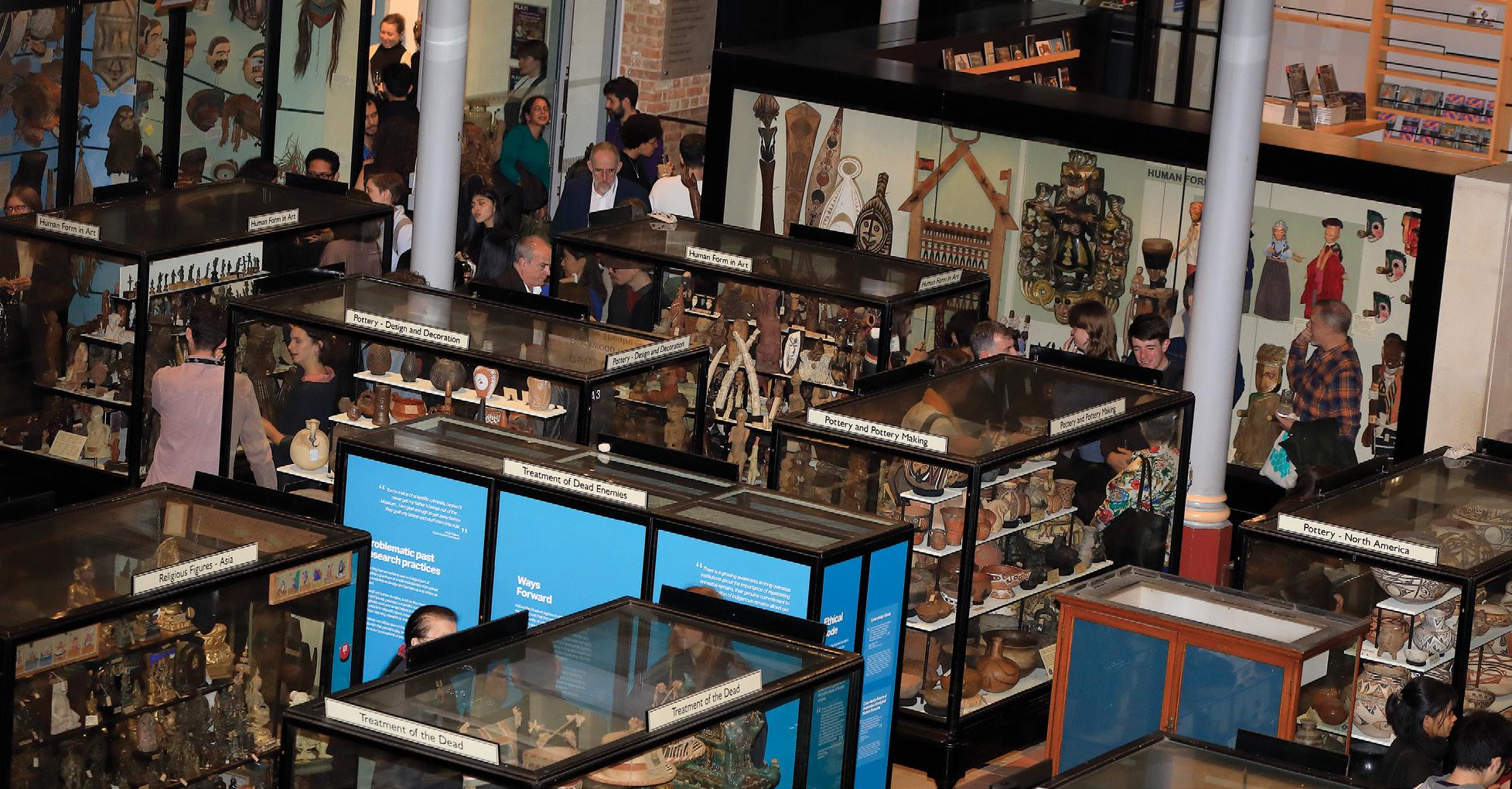
South Parks Road, Oxford OX1 3PW
A collection of anthropology and world archaeology (housed in the same building as the Museum of Natural History).
Please note that a visit to the Museum evokes very different emotions and feeling with different people, depending on background and walks of life. For those who have heritage or roots in regions of the world that suffered the violence of the empire, the Pitt Rivers Museum can be a very difficult and hurtful place. Undoing the coloniality is integral to the work the Museum does today. See more at https://www.prm.ox.ac.uk/committed-to-change .
42 Pembroke St., Oxford OX1 1BP
A unique museum celebrating the human need for stories and narratives and the benefits they can bring. Very family-friendly.
New Theatre Oxford
24-26 George St., Oxford OX1 2AG
Oxford Playhouse
11-12 Beaumont St., Oxford OX1 2LW
Riverside walks are a great way to see Oxford during the day but the paths are not lit at night so night-time riverside walks are not recommended.
University Parks opens daily at 7.45 a.m and is a wonderful place for walking or running.
Port Meadow in north Oxford is one of the largest open spaces in the city. With the River Thames flowing through it, it is home to cattle, horses, and wildfowl. It is a great place to view the University’s “dreaming spires.”
If you are arriving early or extending your stay, we recommend the following transport options:
Oxford is best explored on foot with plenty of walks through the ancient and historical city. We suggest an early morning stroll around the city when it is quiet and you can truly enjoy its beauty.
Two of the main companies are 001 Taxis and Royal Cars.
001 Taxis: +44 1865 240000
Royal Cars: +44 1865 777333
Please note: e-hailing services such as Uber and Bolt are not available in Oxford. In order to use your mobile to find a cab, please download the Royal Cars app or Free Now app. There may be a long wait during busy times such as lunch and evening meal times (particularly at the weekend).
Bicycles are also a convenient way to get around the city. They can be rented from Bainton Bikes .
For those who would like to travel to London in their spare time, a train ticket can be booked. Trains are regular (departing every 30 minutes) and tickets can be booked online www.gwr.com It takes roughly an hour to get to London from Oxford.
Use the Atlantic Fellows Hub to connect and collaborate with Atlantic Fellows and program staff, and share photos or messages about the convening with the community.
Follow @atlanticfellows on Facebook, LinkedIn, Twitter and Instagram to stay up-to-date on the news. Find out what other Fellows and program staff are doing. And please post your own photos while you are at the convening, ensuring first of all, of course, that everyone in the photo is happy to appear.
twitter.com/atlanticfellows
facebook.com/AtlanticFellows
instagram.com/Atlanticfellows
linkedin/AtlanticFellows
Please use the hashtag for the convening #StepInStepUp
All personal information provided will be stored and processed by the Atlantic Institute in line with our Privacy Policy and the GDPR principles. When you submitted your application to participate in this event you agreed that you had read and understood the Atlantic Institute’s Privacy Policy on how we collect and use your information to administrate, research, communicate, build and support the global Atlantic Fellows Community.
We should communicate with you if there are any recordings taking place at the event so you can make an informed decision about whether and how you wish to participate.
If you have any questions, comments or concerns about how your data will be managed, please contact Daniel Salazar Murillo, data insight lead at the Atlantic Institute, at: daniel.salazarmurillo@atlanticfellows.org
The Atlantic Institute provides Atlantic Fellows and staff with the networks, architecture and resources to connect, learn and act to address the underlying systemic causes of inequity – locally and globally.
It amplifies the influence and impact of the global Atlantic community of changemaking Fellows and programs. The Institute promotes collaboration and shared approaches, connects the Atlantic Fellows program community to a broader network of equity-oriented initiatives, and raises global awareness of the work of Fellows and their programs.
For more information, go to the website: www.atlanticfellows.org/atlantic-institute
The Atlantic Institute is hosted by the Rhodes Trust in Oxford. The Trust brings together and develops exceptional people from all over the world and from all fields of study, who are impatient with the way things are and have the courage to act.
For more information, go to the website: www.rhodeshouse.ox.ac.uk